Why Choose Us:
- Experienced Practitioners: Our team is composed of highly trained therapists specialising in various therapies.
- Personalised Treatment Plans: We tailor our treatments to suit each individual’s unique needs.
- Our Approach: We look at the whole person—mind, body, and spirit—to achieve optimal health.
- Safe and Confidential Environment: Your well-being is our top priority.
- Convenient Location and various ways to book your Appointments: Call us by phone, email, online booking or through social media, to accommodate your schedule.
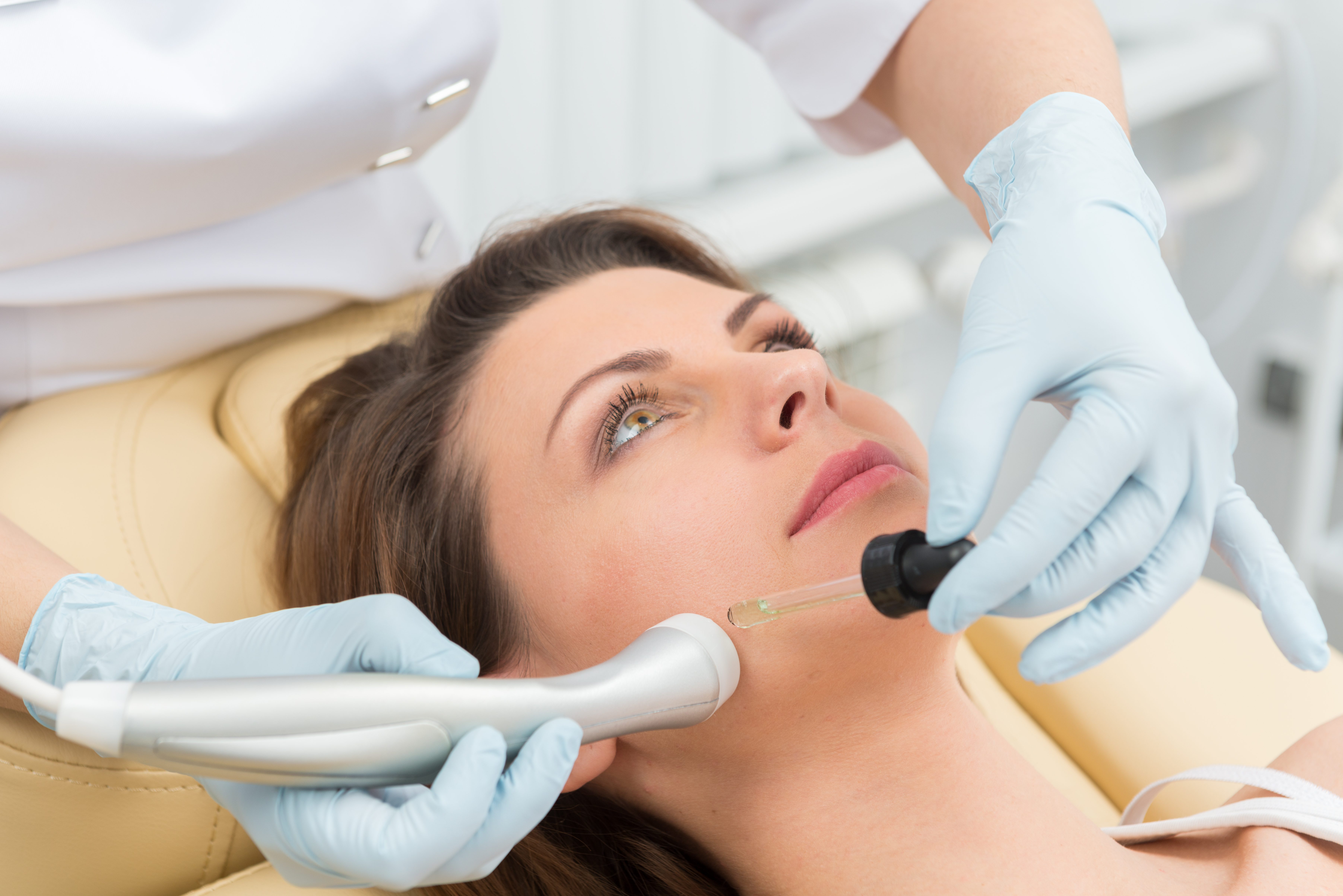

Our Services Include:
- Osteopathy: Addressing back,neck and joint pain, headaches, and better mobility.
- Counselling and coaching for couples and individuals.
- Acupuncture: For a variety of issues, such as acupuncture for fatigue, for female health and fertility,acupuncture for IBS, and acupuncture for panic attacks.
- Hypnotherapy: hypnotherapy for anxiety and hypnotherapy for depression,
- For self esteem, to improve ability to manage pain and stress, to help with sleep.
- Cranial Therapy: Featuring craniosacral therapy and cranial osteopathy, a very gentle and deep treatment for all age groups, from babies to old age, relieves
- Pain and discomfort. Deeply relaxing.
- Massage Therapy: Including sports injury treatment and healing for sports injuries.
- Homoeopathy: Offering homoeopathy natural remedies, homoeopathic treatment, and general homoeopathy for emotional well being.
- Coaching: Covering a range of life challenges like coaching for public speaking, coaching for depression, and coaching for anxiety to improve performance and
- Achieve more in life.
In-Depth Service Sections
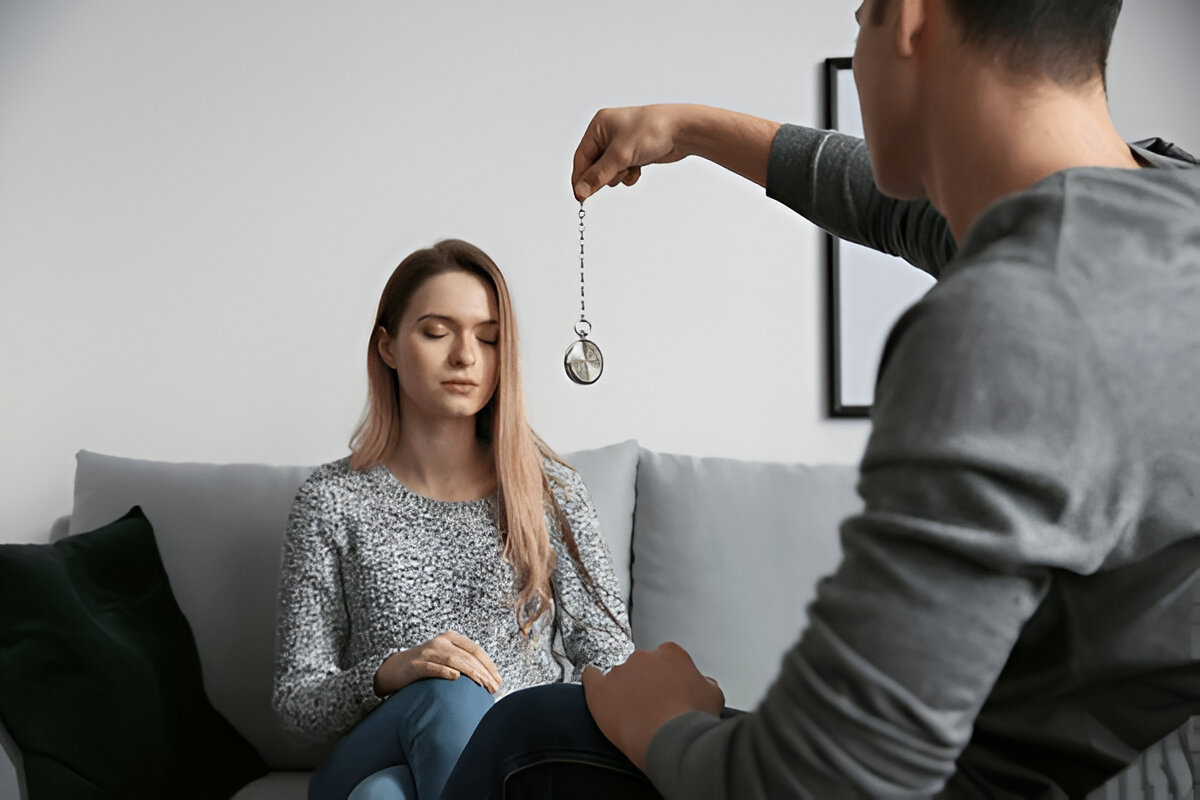
Hypnotherapy Services
Understanding Hypnotherapy: Hypnotherapy is a therapeutic practice that utilises the power of suggestion to facilitate positive changes in a person’s thoughts, feelings, and behaviours.
During a hypnotherapy session, the client is guided into a deeply relaxed state, which allows the therapist to work with the subconscious mind.
This approach can be beneficial for addressing various mental health concerns, emotional issues, and even physical ailments.
Our Hypnotherapy Specialties:
- Hypnotherapy for Anxiety: Anxiety can be debilitating, affecting everyday life and interactions. Our approach to hypnotherapy for anxiety involves helping clients identify the triggers of their anxiety, replacing negative thought patterns with calming affirmations, and teaching coping mechanisms to maintain a state of relaxation even in stressful situations. Hypnotherapy for anxiety has been shown to significantly reduce symptoms and help clients regain control over their emotional state.
- Hypnotherapy for Depression: Depression is more than just feeling sad—it can manifest as a lack of motivation, loss of interest in activities, and a persistent sense of hopelessness. Hypnotherapy for depression aims to uncover the underlying causes of these feelings, helping to reframe negative self-talk and instil a renewed sense of purpose. By addressing the subconscious mind, hypnotherapy can promote healing and bring about long-lasting positive changes.
Benefits of Hypnotherapy:
- Alleviates symptoms of anxiety and depression.
- Enhances emotional resilience and coping strategies.
- Promotes relaxation and reduces stress levels.
- Can be used as a complementary therapy alongside traditional treatment options.
Who Should Consider Hypnotherapy? If you are struggling with anxiety, depression, or a lack of self-confidence, hypnotherapy can be an effective tool to transform negative thinking patterns into a healthier, more positive mindset.
Cranial Therapy Services
Overview of Cranial Therapy: Cranial therapy is a gentle, hands-on treatment aimed at releasing stress and tension in the body, particularly in the head and spinal area. It encompasses techniques like craniosacral therapy and cranial osteopathy, both of which work to restore balance and promote healing by addressing restrictions in the cranial system.
Craniosacral Therapy: This therapeutic approach involves using light touch to assess and treat the craniosacral system—a system that includes the membranes and cerebrospinal fluid surrounding the brain and spinal cord. Craniosacral therapy is effective in alleviating headaches, migraines, neck pain, and even anxiety and stress. By gently manipulating the cranial bones and spinal areas, our therapists help release deep-seated tension, enabling the body’s self-healing mechanisms.
Cranial Osteopathy: A more structured form of cranial therapy, cranial osteopathy focuses on diagnosing and treating restrictions in the head, spine, and nervous system. It’s particularly beneficial for treating chronic pain, sleep disturbances, and TMJ (temporomandibular joint) disorders. By restoring mobility and flexibility to these areas, cranial osteopathy promotes a better flow of cerebrospinal fluid and overall bodily function.
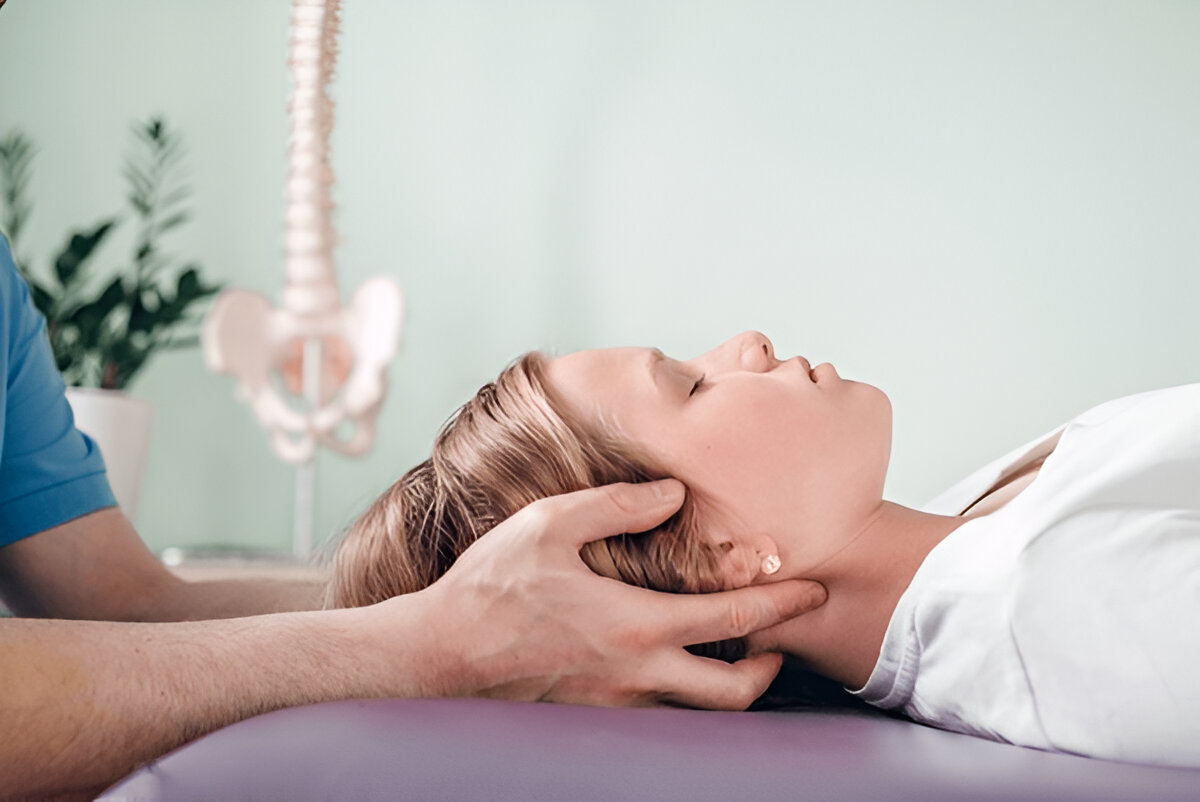
When to Consider Cranial Therapy:
- Chronic headaches and migraines.
- Neck pain and stiffness.
- Insomnia and other sleep disturbances.
- Stress-related tension.

Massage Therapy Services
What is Massage Therapy? Massage therapy involves manipulating the body’s soft tissues to relieve pain, improve circulation, and promote relaxation. At Marlborough House Therapy Centre, our massage therapists are trained in a variety of techniques to address sports injuries, muscle tension, and physical discomforts resulting from stress or overuse.
Our Massage Therapy Services:
- Sports Injuries: Whether you’re a professional athlete or a weekend warrior, sports injuries can be painful and frustrating. Our massage therapies focus on rehabilitating muscles, reducing inflammation, and accelerating recovery. Specific techniques such as deep tissue massage, trigger point therapy, and myofascial release are used to target injured areas and restore muscle function.
- Sports Injury Treatment: In addition to relieving pain, our sports injury treatment includes a thorough assessment of the injury to create a personalised treatment plan. This may involve a combination of massage, stretching, and strengthening exercises to ensure a full and speedy recovery.
Benefits of Massage Therapy:
- Reduces muscle tension and stiffness.
- Improves flexibility and range of motion.
- Enhances circulation and lymphatic drainage.
- Accelerates healing of sports injuries.
Who Should Consider Massage Therapy? If you are experiencing muscle pain, recovering from a sports injury, or simply want to enhance your overall physical well-being, massage therapy can provide significant relief and improve your quality of life.
Homeopathy Services
Understanding Homoeopathy: Homoeopathy is a natural system of medicine that uses highly diluted substances to stimulate the body’s healing response. It is based on the principle of “like cures like”—meaning that a substance that causes symptoms in a healthy person can, in small doses, treat similar symptoms in a sick person.
Our Homoeopathy Specialties:
- Homoeopathy Natural Remedies: We offer a range of natural remedies tailored to each client’s unique symptoms and health profile. These remedies are designed to treat everything from allergies and skin conditions to chronic pain and emotional health issues.
- Homoeopathic Treatment: Our homoeopathic treatment approach involves a thorough consultation to understand the client’s physical, mental, and emotional state. Remedies are then selected to address the underlying cause of illness, promoting healing.
- General Homeopathy: We provide homoeopathy for a wide range of conditions, including digestive disorders, respiratory issues, and immune system imbalances.

Benefits of Homeopathy:
- Gentle and non-invasive.
- Can be used alongside conventional treatments.
- Addresses both acute and chronic conditions.
- Tailored to the individual’s needs.
Who Should Consider Homeopathy? Homoeopathy is ideal for individuals seeking natural treatment options that work in harmony with the body’s natural healing mechanisms.
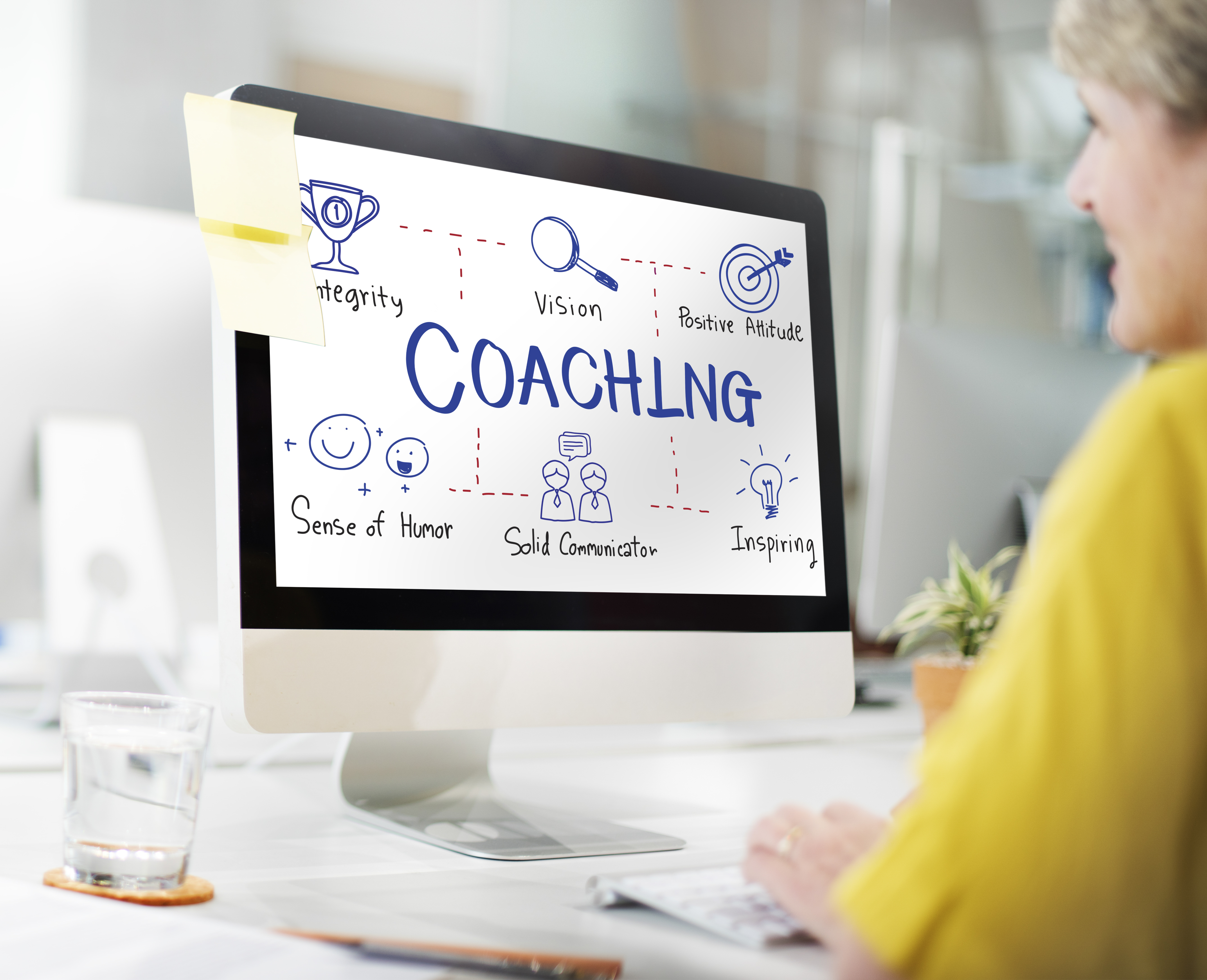
Coaching Services
What is Life Coaching? Life coaching is a process that helps individuals set and achieve personal and professional goals. Whether you’re struggling with confidence, facing a major life transition, or wanting to enhance your communication skills, our coaching services provide support and guidance to help you succeed.
Benefits of Coaching:
- Provides clarity and direction.
- Enhances personal and professional growth.
- Offers accountability and support.
- Helps build confidence and self-esteem.
Who Should Consider Coaching? If you’re feeling stuck, lacking motivation, or struggling with personal challenges, life coaching can help you gain insight, set meaningful goals, and create positive change in your life.
Our Coaching Specialties:
Coaching for Public Speaking: Many people experience anxiety when speaking in public. Our coaching for public speaking helps clients overcome fear and gain the confidence needed to communicate effectively in front of an audience.
Online Confidence Coaching: Low self-esteem can hold you back from achieving your goals. Our online confidence coaching provides tools and strategies to build self-assurance and present your best self in personal and professional settings.
Coaching for Depression: For those struggling with depression, traditional therapies may not always be enough. Our coaching for depression offers a supportive approach to help clients identify negative thought patterns, set achievable goals, and find a sense of purpose.
Breakup Coaching: Recovering from a breakup can be emotionally draining. Our breakup coaching helps clients process their emotions, rebuild their self-esteem, and move forward with a positive outlook.
Coaching for Relationships: Whether you’re facing difficulties in your personal relationships or want to enhance communication, our coaching for relationships offers guidance on building healthier, more fulfilling connections.
Coaching for Anxiety: Anxiety can be overwhelming and impact all areas of life. Our coaching for anxiety focuses on practical strategies to manage anxiety and build emotional resilience.
Osteopathy Services
Understanding Osteopathy: Osteopathy is a type of manual therapy that focuses on diagnosing, treating, and preventing a wide range of musculoskeletal issues. It emphasises the physical manipulation of the body’s muscles and bones to promote healing, improve mobility, and alleviate pain. Unlike traditional medical treatments, osteopathy takes a comprehensive approach, considering how different parts of the body interact and influence each other.
Our Osteopathy Specialties:
- Back Pain Treatment: Back pain is one of the most common complaints among adults and can significantly impact daily activities. Our osteopaths specialise in treating back pain by using gentle manipulation and stretching techniques to restore alignment and reduce tension in the muscles and joints. By improving spinal mobility and reducing nerve irritation, osteopathy can effectively alleviate both acute and chronic back pain.
- Headache Relief: Many headaches are caused by tension and restrictions in the neck and upper back. Our osteopathic approach to headaches involves identifying the root cause of the pain and using targeted techniques to release muscle tightness, improve posture, and promote better blood flow. This can provide long-term relief from tension headaches, migraines, and even cervicogenic headaches.
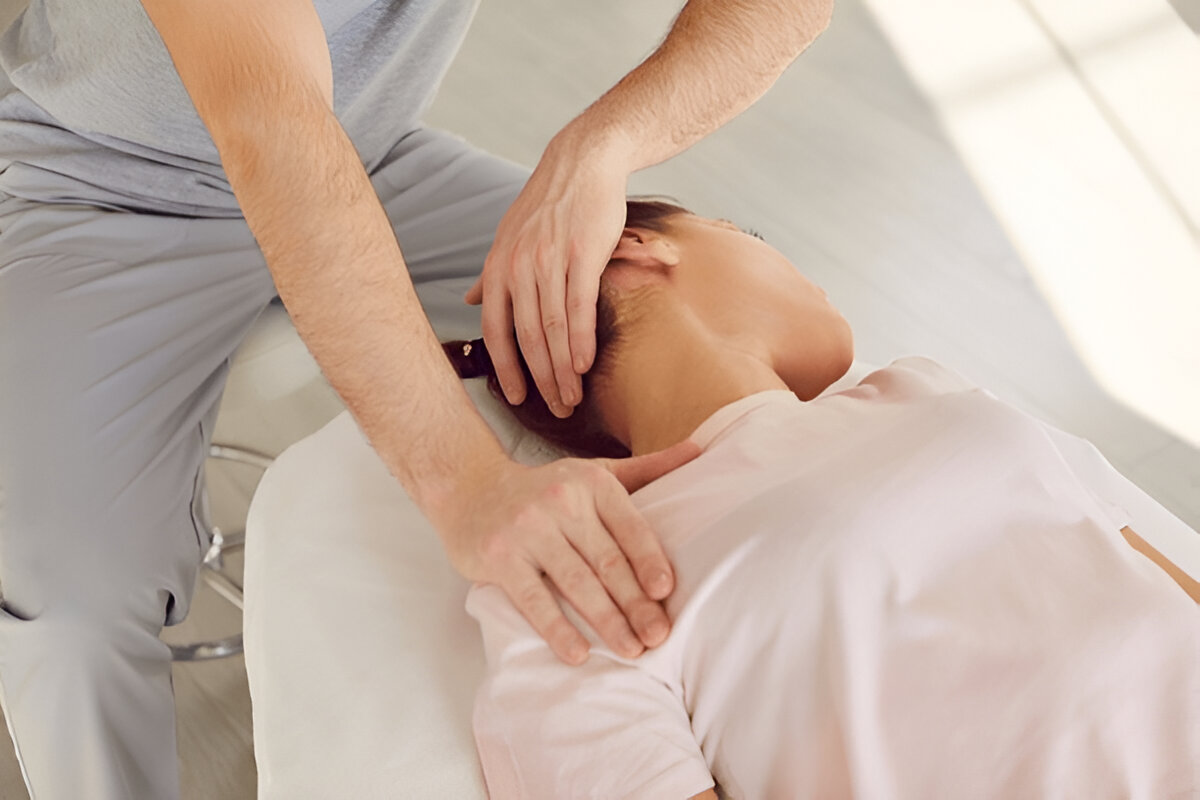
Osteopathic Techniques We Use:
- Soft Tissue Manipulation: Gently massaging and stretching muscles to improve circulation and reduce muscle tightness.
- Joint Mobilisation: Gradually moving joints through their range of motion to improve flexibility and function.
- Myofascial Release: Applying sustained pressure to specific points in the muscle tissue to relieve pain and increase mobility.
- Cranial Osteopathy: A specialised form of osteopathy that focuses on relieving tension in the head, neck, and spine.
Benefits of Osteopathy:
- Relieves musculoskeletal pain, including back pain, neck pain, and headaches.
- Improves posture and body alignment.
- Enhances overall mobility and flexibility.
- Supports the body’s natural healing mechanisms.
- Reduces stress and promotes relaxation.
Who Should Consider Osteopathy? If you’re experiencing chronic pain, stiffness, or mobility issues, osteopathy can be an effective treatment option. It’s also beneficial for individuals recovering from injuries or those looking to improve their posture and physical performance.

Counselling Services
What is Counselling? Counselling is a professional therapy service that provides a safe and confidential environment for individuals to explore their thoughts, emotions, and behaviours. It is a collaborative process where the counsellor helps clients identify personal challenges, develop coping strategies, and work through difficult life situations.
Our Counselling Specialties:
Self-Confidence Counselling: Low self-confidence can affect every aspect of life, from personal relationships to career success. Our self-confidence counselling focuses on helping individuals understand the root causes of their self-esteem issues, challenge negative self-beliefs, and build a stronger, more positive self-image. Through guided discussions, practical exercises, and supportive feedback, we aim to empower clients to believe in their own abilities and values.
How Our Counselling Services Can Help:
- Address Emotional Issues: Whether you’re struggling with anxiety, depression, or unresolved grief, our counsellors are here to provide compassionate support and guidance.
- Improve Communication Skills: Learn to express your feelings and thoughts more effectively, both in personal and professional settings.
- Enhance Relationship Satisfaction: Address common relationship issues such as conflict resolution, trust-building, and effective communication.
- Promote Personal Growth: Gain insight into your thoughts and behaviours, set realistic goals, and work towards achieving personal and professional growth.
What to Expect During a Counselling Session: Our counselling sessions typically last 60 minutes, with options for longer sessions. During the first session, we will listen to you and see how you wish to proceed. Throughout the process, you’ll have a supportive space to share your experiences and work through any issues in effective ways and gain tools to help yourself in future.
Benefits of Counselling:
- Provides emotional support in a safe and confidential environment.
- Helps develop healthy coping strategies.
- Improves self-awareness and emotional intelligence.
- Promotes essential skills for your quality of life and relationships.
Who Should Consider Counselling? Counselling is suitable for anyone facing life or emotional difficulties, relationship issues, or simply looking to gain more insight into themselves and their life choices.
Acupuncture Services
Understanding Acupuncture: Acupuncture is a traditional Chinese medicine technique that involves inserting fine, sterile needles into specific points on the body. It is based on the concept of balancing the body’s energy, or Qi (pronounced “chee”), and promoting natural healing. By stimulating these acupuncture points, the body’s energy flow is regulated, reducing pain and restoring overall balance.
Benefits of Acupuncture:
- Provides natural pain relief.
- Reduces stress and promotes relaxation.
- Supports digestive health and overall wellness.
- Balances emotions and energy flow.
- Can be used as a complementary therapy alongside conventional treatments.

Our Acupuncture Specialties:
Acupuncture for Headache Relief: Headaches can be caused by a variety of factors, including tension, stress, and sinus issues. Acupuncture for headache relief focuses on releasing tightness and promoting blood flow to the affected areas. By targeting specific points in the head, neck, and upper body, acupuncture can provide effective relief from tension headaches and migraines.
Acupuncture for IBS: Irritable Bowel Syndrome (IBS) is a common gastrointestinal disorder that can cause discomfort and pain. Our acupuncture for IBS sessions aims to regulate digestive function and reduce symptoms such as bloating, cramping, and irregular bowel movements. By targeting points associated with the digestive organs, acupuncture helps restore balance and improve gut health.
Acupuncture for Panic Attacks: Panic attacks can be overwhelming and debilitating. Acupuncture for panic attacks focuses on calming the nervous system and restoring balance to the body’s energy flow. By reducing the physical and emotional symptoms associated with panic attacks, acupuncture can help individuals regain a sense of control and peace.
Acupuncture for Depression and Anxiety: Depression and anxiety are complex emotional states that affect millions of people. Our acupuncture for depression and anxiety treatments are designed to harmonise the mind and body, releasing emotional blockages and promoting relaxation. By addressing both physical and emotional imbalances, acupuncture helps reduce symptoms and improve overall well-being.
Acupuncture for fertility and women’s health.
Acupuncture for fatigue and recovery from shock and illness.
Five Elements of Chinese Medicine: This ancient system of medicine is based on the five elements—wood, fire, earth, metal, and water—which correspond to different organs and emotions. Five elements of Chinese medicine aims to restore harmony by treating imbalances in the elements. This approach can be used to treat a wide range of conditions, including stress, chronic pain, and emotional health issues.
Who Should Consider Acupuncture? If you’re seeking a natural approach to health, acupuncture is an excellent choice. It’s particularly beneficial for those dealing with chronic pain, stress, digestive issues, and emotional imbalances.
What to Expect During an Acupuncture Session: During your first session, our acupuncturist will take a detailed health history and discuss your symptoms. The treatment involves inserting fine needles into specific points on the body. The sensation is usually mild, and most clients find the process relaxing. Sessions typically last between 30 to 45 minutes, and a series of treatments may be recommended for best results.

Couples Counselling and Coaching
What is Couples Counselling and Coaching used for?
Couple counselling is a therapeutic service designed to help partners navigate relationship challenges, improve communication, and strengthen their bond. It offers a safe, neutral environment where couples can openly discuss their concerns, gain a deeper understanding of each other’s perspectives, and work towards a healthier, more satisfying relationship. Our skilled practitioners guide mediation for couples to explore issues and events, addressing unresolved conflicts, and building strategies to enhance their relationship dynamics.
Our Couple Counselling Specialties:
- Conflict Resolution Counselling: All couples experience disagreements, but unresolved conflicts can lead to long-term resentment and disconnection. Our conflict resolution sessions focus on identifying the root causes of recurring disputes, teaching effective problem-solving techniques, and promoting respectful dialogue to resolve conflicts constructively.
- Communication Enhancement Therapy: Poor communication is often at the core of relationship struggles. We help couples develop skills to express themselves clearly and listen actively, ensuring each partner feels heard and understood.
- Trust and Intimacy Counselling: Trust is a fundamental component of a strong relationship, and when it’s broken, it can be challenging to rebuild. Our approach includes guiding couples through the process of rebuilding the relationship, and restoring their sense of connection.
How Our Couple Counselling Services Can Help:
- Improve Relationship Satisfaction: By addressing underlying issues, enhancing communication, and fostering emotional closeness, couples can experience greater relationship satisfaction.
- Strengthen Emotional Bonds: Develop a deeper emotional connection with your partner by exploring each other’s needs, values, and shared goals.
- Manage Life Transitions: Whether you’re navigating major life changes like marriage, parenthood, or relocation, we help couples adopt and maintain a strong partnership.
- Reduce Emotional Distance: Learn to address emotional disconnection and prevent misunderstandings that create barriers between you and your partner.
What to Expect During a Couple Counselling Session:
Our sessions typically last 60 minutes. During the first session, we’ll discuss your relationship history, and current challenges, and set goals for therapy. Throughout the process, the counsellor will facilitate open dialogue, encourage self-reflection, and offer tools to help the couple communicate more effectively and resolve issues together.
Benefits of Couple Counselling:
- Enhances communication and understanding.
- Strengthens emotional and physical intimacy.
- Provides strategies to manage conflict in healthy ways.
- Restores trust and builds a deeper connection.
- Facilitates mutual support and partnership.
Who Should Consider Couple Counselling?
Couple counselling is suitable for couples and individuals at any stage of their relationship, whether you’re dating, engaged, married, or navigating a separation. It’s particularly beneficial for couples dealing with communication issues, trust concerns, unresolved conflicts, or simply seeking to strengthen their relationship.
By engaging in couple counselling, partners can create a more harmonious and resilient relationship built on mutual respect, understanding, and shared values.
Aesthetics
What are aesthetics?
Aesthetics treatments enhance your natural beauty.
The therapist will discuss what you are looking for and use advanced treatments and procedures to achieve your desired results.
Treatments include:
anti-wrinkle treatments, dermal fillers, chemical peels,dermaplaning,microneedling, skin boosters, eye treatments, hair loss treatments, fat dissolve treatments, polynucleotides and vitamin injections.

Treatments
- Anti-wrinkle treatments aim to reduce the appearance of wrinkles and fine lines on the skin. The most suitable anti-wrinkle treatment depends on factors such as the severity of wrinkles, skin type, desired results, and individual preferences.
- Botulinum toxin injections temporarily paralyse facial muscles responsible for causing wrinkles, particularly in areas such as the forehead, between the eyebrows, and around the eyes (crow’s feet).
- Dermal fillers, such as hyaluronic acid-based fillers e.g. Juvederm, are injected into the skin to add volume, fill in wrinkles and fine lines, and restore facial contours.
- Chemical peels involve applying a chemical solution to the skin to exfoliate the top layers, stimulate collagen production, and improve skin texture and tone, thereby reducing the appearance of wrinkles and promoting smoother, younger-looking skin.
- Microdermabrasion is a non-invasive procedure that uses a handheld device to exfoliate the outer layer of the skin, reducing the appearance of fine lines, wrinkles, and age spots and promoting the growth of new, healthy skin cells.
- Microneedling involves using a device equipped with tiny needles to create controlled micro-injuries in the skin, stimulating collagen and elastin production and improving the appearance of wrinkles, scars, and other skin imperfections.
Emotional Freedom Technique
Outcome studies compare outcomes, e.g. levels of pain, degree of depressive symptoms, either between two groups, or between the same people before and after EFT. The headings below tell you, in alphabetical order, the conditions for which data was gathered in the trials below them. All of these research titles can be found in their original form by clicking ‘here’.
Please click on the title that interests you and you will be taken to the relevant research;
- Psychological Trauma in Veterans using EFT
- The Effect of a brief EFT self-intervention on Anxiety, Depression, Pain and Cravings in Healthcare workers
- Psychological Symptom Change in Veterans After Six Sessions of Emotional freedom Techniques (EFT)
- The Treatment of Combat Trauma in Veterans Using EFT
- The Effects of EFT on Long-term Psychological Symptoms
- Self-administered EFT in Individuals with Fibromyalgia: a Randomised Trial
- Pilot Study of EFT, WHEE and CBT for Treatment of Test Anxiety in University Students
- The Effect of Progressive Muscular Relaxation and Emotional Freedom Techniques on Test Anxiety in High School Students
Psychological Trauma in Veterans using EFT (Emotional Freedom Techniques): A Randomised Controlled Trial
Dawson Church, PhD[1] Crystal Hawk, MEd,[2] Audrey Books, PhD,[3] Oliver Toukolehto,[4] Maria Wren, LCSW,[5] Ingrid Dinter,[6] Phyllis Stein, PhD[7]. These data were presented at the Society of Behavioural Medicine, Seattle, Washington, April 7-10, 2010. In peer review.
Abstract
This study examined the effect of Emotional Freedom Techniques (EFT), a brief exposure therapy combining cognitive and somatic elements, on post-traumatic stress disorder (PTSD) and psychological distress symptoms in military veterans receiving mental health services. Veterans meeting the clinical criteria for PTSD were randomised to EFT (n = 30) or wait-list (n = 29; WL). The EFT intervention consisted of six hour-long EFT coaching sessions concurrent with standard care. PTSD was assessed using the PTSD Checklist-Military (PCL-M). Psychological distress was measured using the Symptom Assessment 45 (SA-45), which has 2 global scales and 9 subscales for conditions such as anxiety and depression. The WL and EFT groups were compared pre- and posttest (at 1 month for the WL group, after 6 sessions for EFT group). EFT participants had significantly less psychological distress on the global and on all but one of subscales on the SA-45 (p < 0.0002) and the PTSD total score (p < 0.0001) at posttest. 90% of the EFT group no longer met PTSD clinical criteria vs. 4% in the WL. Following the wait-period, WL participants received the EFT intervention. In a within-subjects longitudinal analysis, 60% no longer met PTSD clinical criteria after 3 sessions. This increased to 86% after 6 sessions, and remained at 86% on 3-month follow-up. Statistically significant decreases in psychological distress and PTSD total scores were present after 6 sessions (p < 0.0001), and remained stable at follow-up. The results are consistent with other published reports showing EFTs efficacy at treating PTSD and co-morbid symptoms, and its long-term effects.
The Effect of a Brief EFT (Emotional Freedom Techniques) Self-Intervention on Anxiety, Depression, Pain and Cravings in Healthcare Workers
Dawson Church, PhD 1 & Audrey J. Brooks, PhD 2
1 Foundation for Epigenetic Medicine, Santa Rosa, CA.
2 Department of Psychology, University of Arizona, Tucson
Integrative Medicine: A Clinician’s Journal, (2010), Oct/Nov (in press).
Abstract
This study examined whether self-intervention with Emotional Freedom Techniques (EFT), a brief exposure therapy that combines a cognitive and a somatic element, had an effect on healthcare workers’ psychological distress symptoms. Participants were 216 attendees at 5 professional conferences. Psychological distress, as measured by the SA-45, and self-rated pain, emotional distress, and craving were assessed before and after 2-hours of self-applied EFT, utilising a within-subjects design. A 90-day follow-up was completed by 53% of the sample with 61% reporting using EFT subsequent to the workshop. Significant improvements were found on all distress subscales and ratings of pain, emotional distress, and cravings at posttest (all p < .001). Gains were maintained at follow-up for most SA-45 scales. The severity of psychological symptoms was reduced (-45%, p < .001) as well as the breadth (-40%, p < .001), with significant gains maintained at follow-up. Greater subsequent EFT use correlated with a greater decrease in symptom severity at follow-up (p < .034, r=.199), but not in breadth of symptoms (p < 0117, r=.148). EFT provided an immediate effect on psychological distress, pain, and cravings that was replicated across multiple conferences and healthcare provider samples.
Psychological Symptom Change in Veterans After Six Sessions of Emotional Freedom Techniques (EFT); An Observational Study
Dawson Church, PhD, Linda Geronilla, PhD, & Ingrid Dinter
International Journal of Healing and Caring, (2009, January), 9(1).
Abstract
Protocols to treat veterans with brief courses of therapy are required, in light of the large numbers returning from Iraq and Afghanistan with depression, anxiety, PTSD and other psychological problems. This observational study examined the effects of six sessions of EFT on seven veterans, using a within-subjects, time-series, repeated measures design. Participants were assessed using a well-validated instrument, the SA-45, which has general scales measuring the depth and severity of psychological symptoms. It also contains subscales for anxiety, depression, obsessive-compulsive behaviour, phobic anxiety, hostility, interpersonal sensitivity, paranoia, psychosis, and somatisation. Participants were assessed before and after treatment, and again after 90 days. Interventions were done by two different practitioners using a standardised form of EFT to address traumatic combat memories. Symptom severity decreased significantly by 40% (p < .001), anxiety decreased 46% (p < .001), depression 49% (p < .001), and PTSD 50% (p < .016). These gains were maintained at the 90-day follow-up.
The Treatment of Combat Trauma in Veterans Using EFT: A Pilot Protocol
Dawson Church, PhD
Traumatology, (2010), 15(1), 45-55.
Abstract
With a large number of US military service personnel coming back from Iraq and Afghanistan with post-traumatic stress disorder (PTSD) and co- morbid psychological conditions, a need exists to find protocols and treatments that are effective in brief treatment timeframes. In this study, a sample of 11 veterans and family members were assessed for PTSD and other conditions. Evaluations were made using the SA-45 (Symptom Assessment 45) and the PCL-M (Post-traumatic Stress Disorder Checklist – Military) using a time-series, within-subjects, repeated measures design. A baseline measurement was obtained thirty days prior to treatment, and immediately before treatment. Subjects were then treated with a brief and novel exposure therapy, EFT (Emotional Freedom Techniques), for five days. Statistically significant improvements in the SA-45 and PCL-M scores were found at posttest. These gains were maintained at both the 30- and 90-day follow-ups on the general symptom index, positive symptom total and the anxiety, somatisation, phobic anxiety, and interpersonal sensitivity subscales of the SA-45, and on PTSD. The remaining SA-45 scales improved posttest but were not consistently maintained at the 30- and 90-day follow-ups. One-year follow-up data was obtained for 7 of the participants and the same improvements were observed. In summary, after EFT treatment, the group no longer scored positive for PTSD, the severity and breadth of their psychological distress decreased significantly, and most of their gains held over time. This suggests that EFT can be an effective post-deployment intervention.
The effects of EFT on long-term psychological symptoms
Rowe, J. (2005). The effects of EFT on long-term psychological symptoms. Counselling and Clinical Psychology Journal, 2(3):104.
Abstract
Previous research (Salas, 2000; Wells, et al., 2003), theoretical writings (Arenson, 2001, Callahan, 1985, Durlacher, 1994, Flint, 1999, Gallo, 2002, Hover-Kramer, 2002, Lake & Wells, 2003, Lambrou & Pratt, 2000, and Rowe, 2003), and many case reports (www.emofree.com) have suggested that energy psychology is an effective psychotherapy treatment that improves psychological functioning. The purpose of the present study was to measure any changes in psychological functioning that might result from participation in an experiential Emotional Freedom Techniques (EFT) workshop and to examine the long-term effects. Using a time-series, within-subjects repeated measures design, 102 participants were tested with a short-form of the SCL-90-R (SA-45) 1 month before, at the beginning of the workshop, at the end of the workshop, 1 month after the workshop, and 6 months after the workshop. There was a statistically significant decrease (p < .0005) in all measures of psychological distress as measured by the SA-45 from pre-workshop to post-workshop which held up at the 6 month follow-up.
Self-administered EFT (Emotional Freedom Techniques) in Individuals with Fibromyalgia: A Randomised Trial
Gunilla Brattberg, MD, School of Medicine, Lund University, Sweden
Integrative Medicine: A Clinician’s Journal, (2008), Aug/Sep, 30-35.
Abstract
The aim of this study was to examine if self-administered EFT (Emotional Freedom Techniques) leads to reduced pain perception, increased acceptance, coping ability and health-related quality of life in individuals with fibromyalgia. 86 women, diagnosed with fibromyalgia and on sick leave for at least 3 months, were randomly assigned to a treatment group or a waiting list group. An eight-week EFT treatment program was administered via the Internet.
Upon completion of the program, statistically significant improvements were observed in the intervention group (n=26) in comparison with the waiting list group (n=36) for variables such as pain, anxiety, depression, vitality, social function, mental health, performance problems involving work or other activities due to physical as well as emotional reasons, and stress symptoms. Pain catastrophizing measures, such as rumination, magnification and helplessness, were significantly reduced, and the activity level was significantly increased. The number needed to treat (NNT) regarding recovering from anxiety was 3. NNT for depression was 4.
Self-administered EFT seems to be a good complement to other treatments and rehabilitation programs. The sample size was small and the dropout rate was high. Therefore the surprisingly good results have to be interpreted with caution. However, it would be of interest to further study this simple and easily accessible self-administered treatment method, which can even be taught over the Internet.
Pilot Study of EFT, WHEE and CBT for Treatment of Test Anxiety in University Students
Daniel J. Benor, Karen Ledger, Loren Toussaint, Greg Hett, & David Zaccaro
Explore: The Journal of Science and Healing, (2009, November) 5(6), 338-340.
Abstract
Objective: This study explored test anxiety benefits of Wholistic Hybrid derived from EMDR (WHEE), Emotional Freedom Techniques (EFT), and Cognitive Behavioural Therapy.
Participants: Canadian university students with severe or moderate test anxiety participated.
Methods: A double-blind, controlled trial of WHEE (n = 5), EFT (n =5), and CBT (n = 5) was conducted. Standardised anxiety measures included: the Test Anxiety Inventory (TAI) and Hopkins Symptom Checklist (HSCL-21).
Results: Despite small sample size, significant reductions on the TAI and HSCL-21 were found for WHEE; on the TAI for EFT; and on the HSCL-21 for CBT. There were no significant differences between the scores for the three treatments. In only two sessions WHEE and EFT achieved the equivalent benefits to those achieved by CBT in five sessions. Participants reported high satisfaction with all treatments. EFT and WHEE students successfully transferred their self-treatment skills to other stressful areas of their lives.
Conclusions: WHEE and EFT show promise as effective treatments for test anxiety.
The Effect of Progressive Muscular Relaxation and Emotional Freedom Techniques on Test Anxiety in High School Students: A Randomised Controlled Trial
Nilhan Sezgin, PhD, & Bahar Özcan, MA
Energy Psychology: Theory, Research, & Treatment, (2009), (1)1, 23-30.
Abstract
This study investigated the effect of Emotional Freedom Techniques (EFT) and Progressive Muscular Relaxation (PMR) on test anxiety. A group of 312 high school students enrolled at a private academy were evaluated using the Test Anxiety Inventory (TAI), which contains Worry and Emotionality subscales. Scores for 70 students demonstrated high levels of test anxiety; these students were randomised into control and experimental groups. During a single treatment session, the control group received instruction in PMR and the experimental group in EFT, which was followed by self-treatment at home. After 2 months, subjects were retested using the TAI. Repeated covariance analysis was performed to determine the effects of EFT and PMR on the mean TAI score, as well as the 2 subscale scores. Each group completed a sample examination at the beginning and end of the study, and their mean scores were computed. Thirty-two of the initial 70 subjects completed all the study’s requirements, and all statistical analyses were done on this group. A statistically significant decrease occurred in the test anxiety scores of both the experimental and control groups. The EFT group had a significantly greater decrease than the PMR group (p < .05). The scores of the EFT group were lower on the Emotionality and Worry subscales (p < .05). Both groups scored higher on the test examinations after treatment. Although the improvement was greater for the EFT group, the difference was not statistically significant.
Flower Essences
What are flower essences?
Flower essences have been used for healing since ancient times. The therapeutic qualities of flowers are released and captured when they are placed in pure water and left in sunlight. This is a very different process from the making of many conventional medicines, which are made directly from plant materials.
Each flower essence possesses its own unique properties. Some act on your body at a physical level, stimulating your body’s natural healing powers, while others have a subtle healing influence on your thought patterns and emotions.
We use flower essences from around the world. We use them both singly and in subtle combinations to treat the underlying physical and emotional causes of a wide range of conditions. They offer a unique method of rebalancing the whole person – body, mind and spirit.
What to expect
First we need to know all about you, and we’ll ask you a wide range of questions about your lifestyle, diet, likes and dislikes, and medical history.
Your unique formula may contain a number of different essences. It’s important that when you are back at home you follow the precise dosage programme. Some people we treat at Marlborough House tell us they feel an immediate benefit. With others the healing experience is more gradual.
Who and what we treat
You may be suffering from a lack of self-esteem. You may be exhausted and sleeping badly. You may feel overburdened by pressure at work or by problems at home. Maybe you are fearful or depressed.
Flower essences are safe and non-habit forming. Many people have reported feeling better after a course of flower essences
Indian Head Massage
What is an Indian head massage?
In Indian head massage the therapist concentrates on massaging your head, neck and shoulders. This profoundly enjoyable and relaxing massage technique helps promote health and well-being. It stimulates nerve endings, improves blood supply to the scalp and can encourage hair growth.
What to expect
You sit fully clothed in a comfortable chair. Indian head massage is wonderfully relaxing, and at the end of your session you should feel an enhanced sense of well-being. One of the many benefits of Indian head massage is that it helps draw out poisonous toxins from your body. You may, therefore, feel a shade under the weather for a day or so after your session as your body gradually regains its natural balance.
What it treats
Indian head massage encourages a healthy, well-conditioned scalp, and can promote hair growth and slow down hair loss. It helps stimulate blood and lympathic flow to the head, neck and shoulders, improving circulation and reviving the body’s natural immunity. Clients have reported that it has helped to relieve muscular tension and pain, and reduced stress and tension-related conditions such as headaches, neck discomfort, and eye strain.
Mindfulness
Clinical trials since 1972 have shown that meditation can reduce stress, depression and even chronic pain. The trials show that meditation increases white blood cells, lowers blood pressure, reduces anxiety, calms psoriasis,and is now the preferred therapy for depression prescribed by many medical doctors in the UK
What is Mindfulness Meditation?
Learning Mindfulness meditation can give us a real way to make peace with the life situations we are challenged by, be it stress, pain or illness, emotional or physical.
“You can’t stop the waves, but you can learn to surf” is a good analogy. Mindfulness, once learned, will support you for life, whenever you need it, wherever you need it.
You learn how to ‘be fully in the moment’, using the breath to go deeper moment to moment, helping you to change the way you think and feel about your experiences in a non-judgemental way.
Mindfulness is a Buddhist meditation, but you don’t need to be a Buddhist to learn and benefit by it. Mindfulness is for everyone.
It is remarkable how just learning to breathe can be like someone coming up to you and saying “I’ll just take that stress, that pain away from you, shall I?”
EIGHT WEEK MINDFULNESS COURSE ONE TO ONE
The Mindfulness course is taught once a week for eight weeks. It consists of learning the relaxation, the breathing, the eating meditation, walking meditation and mindfulness in how we do things. You will learn how to integrate mindfulness into your everyday life. Once you do, your day will not feel complete without it!
MINDFULNESS MEDITATION FOR CHRONIC CONDITIONS
Taught one to one for people living with chronic disease, chronic pain, anxiety, depression and emotional distress. Mindfulness once learned is a tool for real life situations. We don’t need peace and quiet to practise mindfulness, we use mindfulness when we really need it out and about when in difficulty. Mindfulness is a best friend for life.
MINDFULNESS ONE TO ONE
Book a one hour guided mindfulness session during your lunch hour or after work – anytime you need some time out to reconnect. People report feeling calmer, diminished pain, and more gusto for life.! The inner chatter subsides…You can talk to us about your problems completely free and without obligation
Nail Bar
What to expect at our Nail Bar?
The nail bar at Marlborough House Therapy Centre is a sanctuary for those seeking exquisite nail care and pampering experiences. Step into our warm and inviting space, where our team of skilled technicians awaits to transform your nails into works of art. Whether you’re in need of a classic manicure, a trendy nail design, or a luxurious spa pedicure, we are dedicated to exceeding your expectations with impeccable service and attention to detail. Indulge in a moment of relaxation and let us elevate your style with flawless nails that reflect your unique personality.
Our treatment menu is full of high quality nail treatments using luxury products by leading brands. Our team of Nail Artists have a wealth of qualifications and experience ensuring that you will always receive a service which is second to none.
Treatments
- Manicures:
Basic manicure (trimming, shaping, cuticle care, and polish)
French manicure (classic white tips with a natural base)
Gel manicure (long-lasting gel polish application cured under UV or LED light)
Spa manicure (includes exfoliation, moisturising mask, and hand massage)
- Pedicures:
Basic pedicure (soak, nail trimming, shaping, cuticle care, exfoliation, and polish)
Gel pedicure (gel polish application for durable, chip-resistant colour)
Spa pedicure (includes foot soak, callus removal, exfoliation, moisturising mask, massage, and polish)
- Nail Enhancements:
Acrylic nails (durable and long-lasting nail extensions)
Gel nails (lightweight and flexible nail extensions cured under UV or LED light)
Nail extensions with tips or forms (for length and shape customisation)
- Nail Art:
Hand-painted designs (customised nail art according to your preferences)
Nail stamping (intricate designs stamped onto nails using specialised tools)
Nail decals (pre-made designs applied to nails for added flair)
- Specialty Treatments:
Nail repair (fixing cracked or broken nails)
Nail polish change (quick change of nail colour without full manicure or pedicure)
Nail removal (safe removal of acrylic or gel nails)
Nail care consultations (advice on nail health, maintenance, and product recommendations)
Neuro Linguistic Programming
What is Neuro-Linguistic Programming (NLP)?
NLP is a study of how and why we behave in the way we do. Since it was formulated in the 1970s, NLP practitioners have amassed a vast compilation of information and insights into the way we perceive and relate to the world and to other people. NLP’s systematic approach to the mind can help us improve the way we think, behave and communicate. NLP is recognised by the medical establishment, in business communications and marketing, in sports science, and in education.
What to expect?
First we talk to you. We ask you a wide range of questions about your lifestyle, likes and dislikes, and medical history.
Most of your negative thoughts, emotions and feelings are created by you unconsciously, and this is where NLP hypnotherapy proves to be such a powerful tool. We’ll take you into a gentle, deeply relaxing state of hypnosis. Don’t worry: you will always remain in control, and you cannot be forced to say or do things you don’t want to. The insights you gain during your NLP session sink in deeply, bringing you the impetus and ability to create lasting, positive change in your life.
Who and what we treat
The potent, safe NLP hypnotherapy techniques can help a wide range of debilitating problems and conditions. It can empower you to:
- Rid yourself of a phobia
- Stop smoking
- Gain added self-esteem and confidence
- Think more clearly
- Communicate more effectively with others
- Feel an enhanced sense of well-being
Psychotherapy
What is Psychometric Testing?
Psychometric testing measures a person’s strengths and challenging characteristics, typically for career, communication skills and personal development. We use internationally recognised tests such as the Hogan suite of assessments, SDI strengths deployment Inventory and OPQ. All these are administered online and follow up feedback or coaching sessions can be in person or by phone/Skype.
How Can it Help Me?
We can then help you use this information to determine how you can improve your skills and manage yourself so that you can achieve better work performance and better relationships.
Once you have a better understanding of yourself, you can have better relationships with people at work. You might discover some new interests or hidden traits that you have not yet pursued but that the tests show you might enjoy. Psychometric testing can help you achieve overall satisfaction in your career
Sports Physiotherapy
What is Acupuncture / Stylostixis Therapy?
Traditional acupuncture is a healthcare system based on ancient principles which go back nearly two thousand years. It has a very positive model of good health and function and looks at pain and illness as signs that the body is out of balance. The overall aim of this treatment is to restore the body’s equilibrium.
What makes this system so uniquely suited to modern life is that physical, emotional and mental aspects are seen as interdependent and reflect what many people perceive as the connection between the different aspects of their lives.
Based on Traditional Chinese acupuncture beliefs, acupuncturists are trained to use subtle diagnostic techniques that have been developed and refined for centuries. The focus is on the individual, not their illness, and all the symptoms are seen in relation to each other. Each patient is unique; two people with the same western diagnosis may well receive different acupuncture treatments.
Traditional acupuncturists believe that the underlying principle of treatment is that illness and pain occur when the body’s qi, or vital energy, cannot flow freely. There can be many reasons for this; emotional and physical stress, poor nutrition, infection or injury are among the most common. By inserting ultra-fine sterile needles into specific acupuncture points, a traditional acupuncturist seeks to re-establish the free flow of qi to restore balance and trigger the body’s natural healing response.
About the Treatment
During your first visit, your Acupuncturist needs to gain a thorough understanding of your main complaint and your general health and lifestyle. This involves asking questions about your current symptoms and your medical history, as well as such things as your sleeping pattern, your appetite and digestion, and your emotional wellbeing. Women are also asked about their menstrual cycle and any past pregnancies and childbirth.
You might feel that some questions appear unrelated to your condition, but the information you give helps your practitioner to form a more complete picture of your health and lifestyle. Your acupuncturist will also take your pulse on both wrists and may examine your tongue and feel for areas of muscular tension or pain.
Your Main Health Complaint
When talking about your main complaint, the practitioner might ask you to describe in your own words what the symptoms feel like and how severe they are. You may also be asked how long you have been having the symptoms, whether they are constant or intermittent and how frequent they are. You should mention any medications that you are taking and whether you have tried any other therapies.
In order to make a diagnosis according to traditional Chinese medicine theory and to find the right treatment approach, the practitioner will also want to know more specific details.
Based on all the information you have given, the practitioner will make a diagnosis and put together your treatment plan, which may include lifestyle and dietary advice as well as acupuncture. Your practitioner will use very fine, single-use pre-sterilised needles to stimulate specific acupuncture points on your body. Because energy meridians range across the whole body, the points used are not necessarily close to where you experience pain or discomfort. For example, if you suffer from headaches, needles might be inserted in your foot or hand.

About Marlborough House Therapy Centre
Who We Are: Marlborough House Therapy Centre is a premier health centre dedicated to providing comprehensive therapies for both physical and emotional well-being. Located in a serene environment, we offer a range of services aimed at promoting natural healing and restoring balance. Our team of experienced practitioners specialises in various complementary therapies, including hypnotherapy, osteopathy, acupuncture, and more.
Our Mission: To empower individuals to achieve optimal health through personalised treatment plans that address the root causes of illness rather than just the symptoms.
Why Choose Marlborough House Therapy Centre?
- Highly Trained Practitioners: Our therapists are experienced and certified in their respective fields, ensuring you receive the highest standard of care.
- Patient-Centric Care: We prioritise your comfort and well-being, providing a safe and supportive environment for healing.
- Convenient Location and Flexible Scheduling: We offer flexible appointment times to fit your busy schedule.
Get in Touch Today: If you’re ready to start your journey to better health, contact us today. Our friendly staff is here to answer any questions and help you find the right therapy for your needs.
 We are available 24/7
We are available 24/7
Feel Free to Contact us Anytime
Call us on 01823 272227 or email contact@mh-tc.com to book.
What Our Clients Say
Frequently Asked Question
Hypnotherapy and traditional therapy both aim to help individuals overcome mental and emotional challenges. However, hypnotherapy focuses on accessing the subconscious mind through a deeply relaxed state, making it easier to address deeply rooted issues and promote positive changes. Traditional therapy, on the other hand, often involves more conscious dialogue and cognitive approaches, such as Cognitive Behavioral Therapy (CBT). Hypnotherapy can be particularly effective for anxiety, depression, and habits like smoking cessation.
While both craniosacral therapy and cranial osteopathy involve gentle manipulation of the cranial and spinal areas, they differ in their methods and focus. Craniosacral therapy is a subtle form of bodywork that primarily focuses on releasing tension in the central nervous system, promoting relaxation, and improving overall health. Cranial osteopathy, on the other hand, is a more structural approach used by osteopaths to address restrictions and misalignments in the bones and tissues of the head and spine. Both techniques aim to restore balance and function to the body.
Yes, acupuncture can be very effective for managing anxiety and depression. By targeting specific points on the body, acupuncture helps regulate the flow of energy, or Qi, and stimulates the release of endorphins and other neurotransmitters that promote a sense of calm and well-being. Our acupuncture treatments for anxiety and depression are designed to reduce stress, balance emotions, and restore mental clarity. For best results, a series of treatments may be recommended.
During a sports injury massage session, our therapist will start by assessing your injury and understanding your pain points. The session will focus on targeted techniques such as deep tissue massage, myofascial release, and stretching to alleviate tension, reduce inflammation, and promote healing. You might experience some discomfort during the treatment, especially if the muscles are very tight, but this usually subsides as the session progresses. Regular sessions can help speed up recovery and improve overall performance.
Yes, osteopathy is a safe and effective treatment for chronic back pain. It involves gentle manual techniques to restore movement and function in the spine, muscles, and joints. Our osteopaths will assess your condition and create a personalised treatment plan that addresses your specific pain points. Osteopathy can help reduce pain, improve mobility, and prevent the recurrence of back pain through ongoing management and exercises tailored to your needs.
Coaching for anxiety involves identifying the root causes of your anxiety, understanding your triggers, and developing practical strategies to manage your emotions and reactions. Our coaching sessions are structured to provide support, guidance, and accountability as you work through anxiety-inducing situations. Techniques such as mindfulness, visualisation, and cognitive reframing are often used to help clients shift their mindset and build emotional resilience.
Craniosacral therapy is effective for a wide range of conditions, including:
- Chronic headaches and migraines.
- Neck and back pain.
- Stress and tension-related disorders.
- Sleep disturbances and insomnia.
- TMJ (temporomandibular joint) issues.
- Post-concussion syndrome.
- General fatigue and emotional stress.
By gently manipulating the cranial bones and spinal areas, craniosacral therapy helps restore balance and supports the body’s natural healing processes.
During a homoeopathic consultation, the practitioner will take a detailed health history, including your physical symptoms, emotional state, lifestyle, and overall well-being. This approach ensures that the remedies prescribed address not only the symptoms but also the underlying causes of your condition. The initial consultation typically lasts 60-90 minutes, and follow-up sessions may be shorter. Homoeopathic remedies are natural, safe, and tailored to each individual’s needs.
During a homoeopathic consultation, the practitioner will take a detailed health history, including your physical symptoms, emotional state, lifestyle, and overall well-being. This approach ensures that the remedies prescribed address not only the symptoms but also the underlying causes of your condition. The initial consultation typically lasts 60-90 minutes, and follow-up sessions may be shorter. Homoeopathic remedies are natural, safe, and tailored to each individual’s needs.
The number of acupuncture sessions needed varies depending on the individual’s condition, overall health, and response to treatment. For acute issues like a recent headache or muscle strain, 1-2 sessions may be sufficient. However, for chronic conditions such as anxiety, depression, or digestive disorders, a series of 6-12 sessions is typically recommended to achieve lasting results. Our acupuncturist will discuss a personalised treatment plan during your initial consultation.

Marlborough House Therapy Centre
- 1 Middle Street, Taunton TA1 1SH
- 01823 272227

